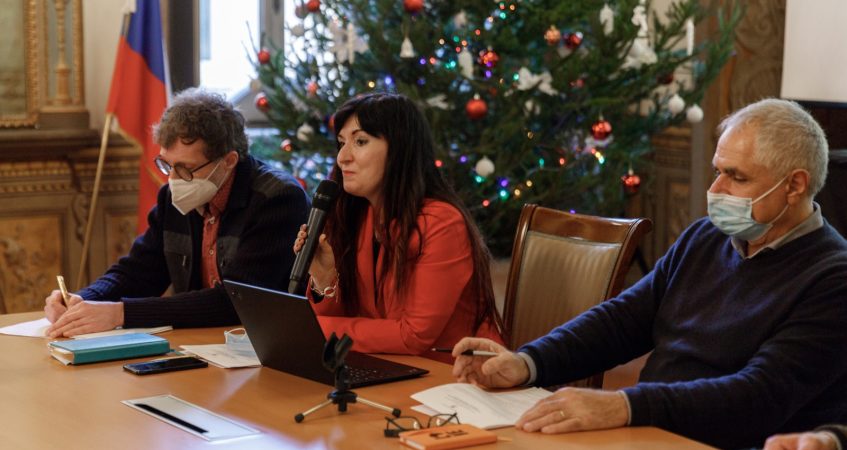Third sector: the new pillar from which to start again

07/01/2022
From L’Eurispes , by Ida Nicotera, Eurispes International Department
Change. It is a natural consequence linked to crises, especially when they are global in scope. The Covid-19 pandemic has hit the population of all states hard, showing the fragility of social systems whose foundations rest exclusively on capital and the maximization of profits. Governments around the world have found themselves facing the limits of unbridled capitalism, with productive sectors brought to their knees by quarantines and state sectors in difficulty on the strategies to adopt. And if the health emergency, as we all hope, will see its end in a short time, the same cannot be said of the social, economic and political changes that its passage has inevitably triggered. In this current panorama, a new protagonist has appeared on the horizon, a sector that has been underestimated for a long time but which, during the pandemic, has provided an essential contribution and has positioned itself as a “beacon” in emergency management: the Third sector.
The limits of the dichotomy of governments: State – Market
Traditionally, there are two pillars on which nations base their operational capacity: the State and the Market, a dichotomy which, since the Second World War, has polarized the world due to the different approach adopted by governments, among those which have privileged the leadership role and management of the state sector and those who have focused on the market. The third sector remained in the shadows for a long time, ignored until its contribution was necessary to address the current crisis, coming to fill the enormous gaps in social assistance and defense services. Since the first moments of the pandemic, the world of volunteering and non-profit associations (NGOs) has been at the forefront of the fight against the Coronavirus, becoming the interpreter of personal care in a system where the culture of capital and profit is in force. The third sector has thus demonstrated that it can play a central role, presenting itself as the new and third pillar on which to build a renewed model of development, where the economy is not only a “market” but also a social one.
Third sector, the new possibilities for international collaboration
It is precisely on these bases that, from 6 to 10 December 2021, Eurispes hosted a delegation from Moscow in Rome for a transnational dialogue between Italy and Russia regarding the role of the third sector. The delegation, composed of eight experts and scholars, represented three different organizations: the Russian State University of Humanitarian Sciences (RSUH) , the Institute for Europe of the Russian Academy of Sciences (IE-RAS) and the NGO Smart civilization. The visit had as its objective the analysis of the Italian system of NGOs and social policies of the third sector, which is why, during the four days of stay, the delegation had the opportunity to meet leading public and private experts and exponents . In particular, during the meeting with Eurispes experts and researchers, important stimuli emerged on which to promote fruitful international collaboration.
The value of the three P policy
«Eurispes began studying the third sector already thirty years ago – underlined the President of the Institute, Gian Maria Fara – a sector that has been practically ignored by the institutions for a long time and of which it has only now understand the fundamental role for the progress of society. The third sector is, in fact, central to the development of a country and can be a great engine of balanced growth: we will see how things evolve in the near future both in Italy and in Europe”. In this regard, for the President of Eurispes, «it is particularly important to focus attention on the value of the policy of the three Ps, i.e. on the Public Private Partnership, which has been underestimated for a long time, but which in the coming years will instead become one of the central tools for effective and constructive cooperation between economic and social operators as well as between institutes and research centers of different countries».
Meeting between Italy and Russia focused on the third sector, solidarity, social and sustainable economy
The meeting of the Russian delegation with Senator Stanislao Di Piazza , one of the “fathers” of the Third Sector reform law that came into force in 2017 and is still being implemented, was also particularly significant. The meeting, aimed at launching collaboration between Italy and Russia in this area, focused on the culture of the third sector, of the solidarity, social and sustainable economy . Senator Di Piazza highlighted the need to restart political analysis precisely from these aspects, thus starting a new process with which to create the basic structures of a new system.
Third sector, the proposals
The three organizations represented by the Moscow delegation have as their objective the promotion of studies and research on the third sector in an international comparative key, the organization of training courses on how to operate in the field of NGOs and the planning of conferences and exchange projects to create a sharing network on these issues. These objectives were welcomed by the representatives of the Italian institutions and NGOs. Among the final indications that emerged from the meetings, also those to strengthen the dialogue between the Italian and Russian Ministries and Government Departments involved in the Third Sector and to evaluate future common initiatives also in the light of the recent provisions of the European Union which at the very end of 2021 launched an action plan in this area and declared 2022 as the European Year of the Third Sector.
